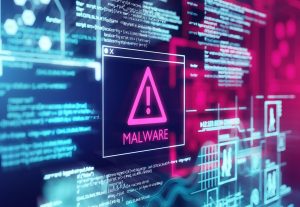Ransomware gangs select targets and infiltrate their systems using malicious techniques. If they find valuable data, they exfiltrate files for use as leverage and deploy crypto malware, also known as ransomware, which locks companies out of their devices, networks, and data.
Gangs then request a ransom payment in return for relinquishing control of data and systems, and for not exposing the stolen information online.
A ransomware assault is classed as both a cyberattack and a data breach. If the Information Commissioner’s Office (ICO) finds a firm has inadequately prepared for the prospect of a ransomware attack and has taking insufficient measures to safeguard data against a breach, it has the power to fine it millions of pounds.
To help your company avoid this unwanted scenario, answer the questions below and act if necessary.
How often do you backup your data and operating systems?
If you have up-to-date backups, you can restore your company data and operating systems. This can get your firm up and running fast if hit by a ransomware attack. Ideally, backups should be continuous but at minimum they must be performed daily so no data is lost if an incident occurs. Always keep your fresh backups offsite or in the cloud to keep them secure. Configure automatic backups to avoid errors.
Is your software up to date?
From security solutions like antivirus and anti-malware to the everyday apps required for daily business processes, software that is not updated can be compromised by ransomware attackers allowing them access through a back door in your system. Updates contain the latest security patches for known vulnerabilities, so install them as soon as they become available.
Can your staff spot a phishing email?
Phishing emails are among the most common entry points for ransomware operators. Teach your staff to identify and report this type of malicious mail and makes sure they understand that if they click on a link, it can deploy ransomware or lead them to a fake site where their credentials will be stolen. This can lead to attacker access on your network.
Are your passwords protected?
Ransomware operators can use brute force attacks to crack passwords and enter enterprise systems and email accounts. Ensure all passwords used are difficult to break and employ multi-factor authentication to thwart access attempts. The National Cyber Security Centre (NCSC) here in the UK advise firm admins to issue passwords to staff that combine three unrelated words to create easy-to-remember but difficult-to-crack credentials.
Do you use data encryption?
Using data encryption software can ensure that even if threat operators infiltrate your systems and email accounts, they will be unable to view your data. As a result, the information you retain on file will be protected against a data breach and you can avoid fines from the ICO.
At Galaxkey, our data encryption solution is NCSC approved and wraps your data in three powerful layers of protection. To prepare for a ransomware attack, test-drive our solution today with a free two-week trial.



